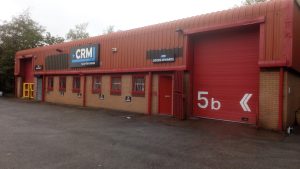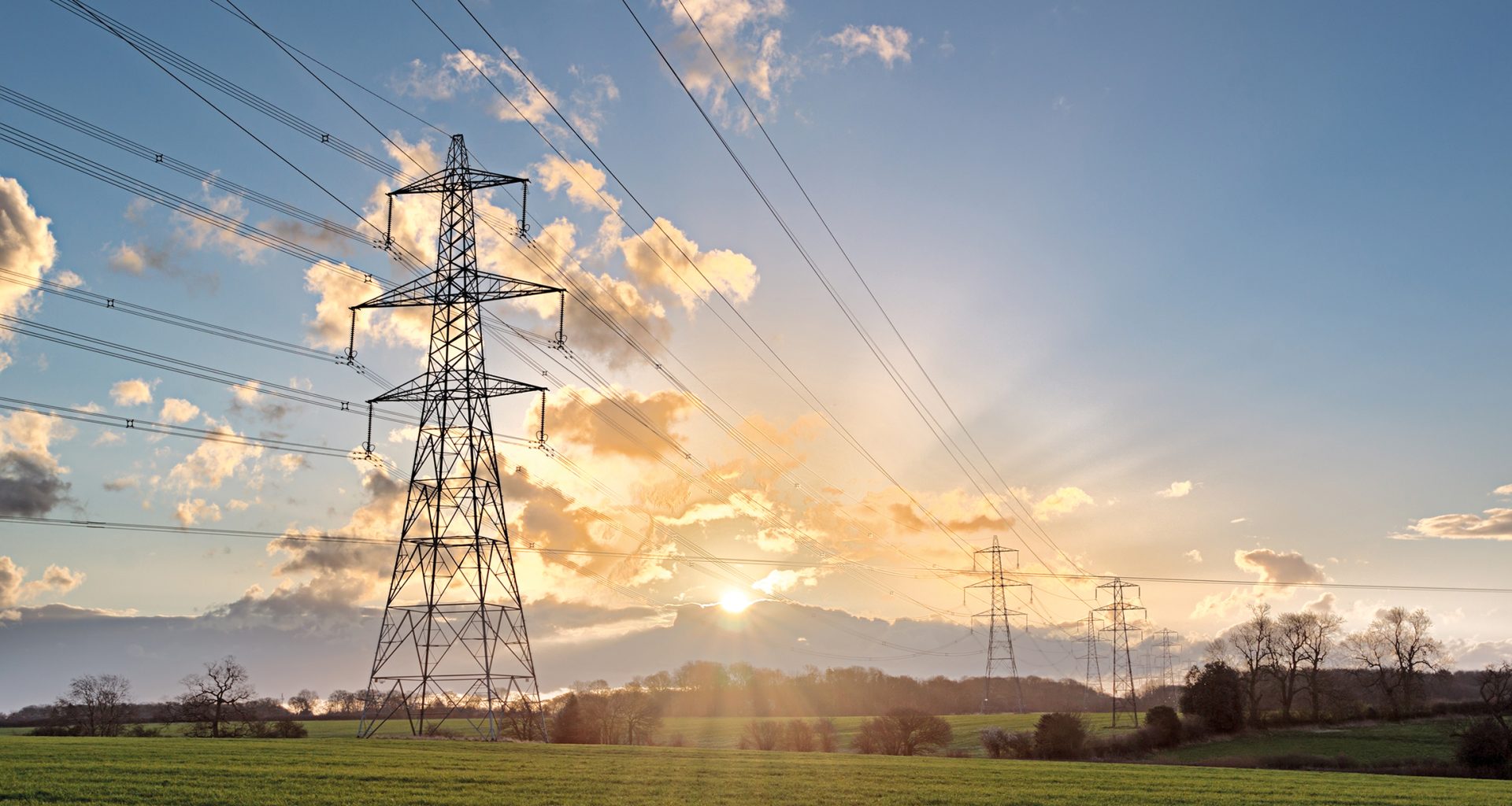Over the last few months, the global energy markets have grown increasingly unpredictable due to post-pandemic recovery, extreme weather, Brexit, and other continued geopolitical issues and this is plunging the UK into an unprecedented energy crisis. A number of industry experts share their experiences of how businesses are being affected with unLTD’s Rachel Measures.
 Corrosion Resistant Materials
Corrosion Resistant Materials
We spoke to Adam Bradley, director of Corrosion Resistant Materials Ltd, a steel stockholder that offers cutting, machining, heat treatment and testing on top of the raw material. They are in their seventh year of trading and see enough exports that their business is 50 per cent worldwide.
Q: What is your insight on the energy crisis?
A: The crisis is happening across Europe, not just in the UK, and quite a lot of our suppliers are based in Europe so when we’re buying material, they’re adding an extra surcharge to make up for the gas prices rising.
Q: What impact is this having?
A: Our steel, that we order from European mills, now has an extra surcharge, so this could be an extra 5 or 10 per cent of the cost. We must take this into consideration when we’re buying and acknowledge that this has a knock-on effect to the end sale price.
It might only be a small percentage increase, but the increase comes on material, on transport, on importing and every other element because energy prices affect everyone.
By the time you’re done it's quite a substantial price increase, and every business along the way pass the cost down until it hits consumers. While customers might have won projects 6-12 months ago at one price prior to the energy crisis, they now must incur the extra cost because no one in the chain wants to take a loss.
Q: What are your fears going forward?
A: I can’t see energy prices coming down, certainly not in the next 12 months, and that’s in Europe as well as the UK. In terms of businesses, we supply to machine shops, as well as engineering, oil and gas, and aerospace companies who all buy steel and all produce products, so I fear it’s going to have a massive knock-on effect to everything.
Q: What has your response been?
A: As a business we can effectively pass the cost on – we’re quite lucky in that respect. We can stand the test of time better than some others but as it continues to go on, we’ve just got to be more careful that we allow for additional cost for these energy increases.
Q: Is there anything else you’d like to tell people?
A: The media is consistently informing people of the domestic effects of the energy crisis, but what’s not being spoken about is the affect the crisis will have on businesses and in particular UK manufacturing. Everything is going up in cost and this could affect how the UK competes in other markets – we’ve already left the EU; we’ve already got that added competition and it already costs more to export.
 Professional Energy Purchasing
Professional Energy Purchasing
Professional Energy Purchasing (PEP) is an independent energy management specialist with over 30 years’ experience in the energy market. Its award-winning procurement team work with all major utility companies in the UK to provide competitive gas, electricity, and water prices for clients.
It also provides independent energy audits to identify potential savings, helping clients to reduce energy, carbon, and plan for Net Zero climate targets. Kayleigh Thompson, sales manager and energy consultant at PEP, speaks to us about the rising energy costs.
Q: What is your insight on the energy crisis?
A: As we negotiate energy contracts for our clients, we have been on the front line of the energy crisis since it began in April 2021. We have seen power prices surge from 15p/kWh in March 2021 to a staggering 45p/kWh in December 2021. This is the worst the energy industry has ever seen, and it has been a similar story for gas.
Q: What impact is this having?
A: From April 2021 prices have escalated and have continued to rise significantly hitting an all-time high in December 2021. Customers are seeing 50 per cent increases in their energy costs, and this is not sustainable in the long term and will cause businesses to close.
Last year, one of our client’s energy costs were £400,000 but this is now estimated at £1m.
Q: What are your fears going forward?
A: We are seeing an extremely volatile market which is unfeasible for businesses or the economy. Businesses across the country have only just survived the financial hardship of the pandemic and are now faced with even more risk due to soaring energy prices.
Q: What has your response been?
A: We continuously inform our clients on the energy market to discuss contract options. We also recommend making sure businesses do have energy contracts in place as being on a variable rate is often even more extortionate. Our procurement team offer a variety of options tailored to the business’s needs.
Our team are constantly educating our client base through publishing relevant articles, monthly energy market updates and pushing out useful information through our social media platforms and website.
Q: What do you want people to know?
A: As energy prices continue to rise, we advise that businesses become familiar with how they are using their energy and find ways to reduce consumption and costs through more energy efficient practices. Our in-house energy manager is helping businesses to reduce energy, carbon, and move towards a Net Zero future.
Get in touch for a chat about your business energy to see how the team can help you by calling 0114 327 2645 or emailing info@pepgb.com.
 Instant Print
Instant Print
Founded in 2001, Instant Print is a SME employing 29 people. It decorates business gifts with corporate logos, along with printing measurement marks on industrial components. Its managing director Glenn Chapman spoke to us about the energy crisis.
Q: What is your insight on the energy crisis?
A: The rising cost of gas has had a knock-on effect to electricity because half of the UK’s electricity is produced by burning gas. Along with the upturn in energy demand following a global pandemic, we are seeing a perfect storm in the energy market.
Q: What impact is this having?
A: If we stayed with our current supplier our electricity bill would be going from £12,800pa to £48,000pa. However, we have managed to find a new supplier at 30p per KWH which means our new bill would be £24,000pa. We’re also investing in solar power to reduce this bill to £9,000pa and we will be receiving approximately £3,500 from selling excess power back to the grid.
We’re generally lucky not to be a high user of energy, but there will be costs to absorb over time. However, we’re investing in solar power, and part of this will ensure our staff and customers are unaffected by rising business costs.
Q: What are your fears going forward?
A: I fear for businesses that are heavy energy users. The increases are eyewatering at the minute.
I have just had my own electricity renewal through, and my supplier is proposing that my KWH rate will increase from 16p to 60p. That’s an increase of 375 per cent.
Q: What has your response been?
A: As mentioned, we are installing Solar PV on the factory roof. Over the course of a year, we will be creating more electricity than we use. In the summer months we will have excess electricity to sell back to the grid and put charge in our cars.
All we can do is minimise our reliance on buying electricity at inflated rates, but it also feels good knowing that our investment will mean that we are minimising our reliance on fossil fuels and instead using the sun’s colossal energy to give us power.
Q: What do you want to tell people?
A: I would recommend businesses to explore self-generation through Solar PV. Rising electricity costs make the systems so much more financially viable. With KWH rates at 30p some systems can pay for themselves in as little as three years, so they’re worth investing in.
 Castings Technology
Castings Technology
We spoke to Angela Taylor, director of AT Management Solutions Ltd, who is a business consultant working with Castings Technology specialising in engineering and STEM based careers, with a background of 30+ years in selling castings and forgings.
Q: What is your insight on the energy crisis?
A: There isn’t a foundry or a forge that hasn’t been impacted by the increase in costs. Where necessary they have implemented supplementary charges to cover the cost of power and concentrate on insulation and energy conservation generally.
Q: What impact is this having?
A: Whilst some businesses have improved their position post-Brexit, building business back up, they will need to raise prices to customers which will be passed along the supply chain. This may reduce the competitive position of British manufacturing compared to the Far East where they are less heavily impacted by energy costs.
However, industry is buoyant in the UK as we have seen reshoring of purchases over the last couple of years. Rolls Royce, for example, have had their best year in manufacturing in 170 years, and our specialist foundries and forges have remained resilient. There is growth and some are predicting an increase in turnover.
We’re becoming more niche in what we manufacture, and this enables British and European engineering to promote itself. I’m not saying there won’t be difficulties, however, over 30 years, I’ve worked through several industrial cycles – the businesses that are here now are well placed to benefit from the latest technologies and innovations as well as the UK’s industrial decarbonisation and the promotion of a circular economy.
Q: Do you have fears going forward?
A: In the UK, we are all in the same boat so we will continue to work together – communication is key, I don’t believe that our customers are suddenly going to walk away from us – we’ve the innovative and technical skills that they look for in their suppliers.
In the drive to meet our net zero strategies, we are developing and trialling new technologies for decarbonisation and helping volume power consumers to develop greener operating methods. But this takes time to evolve, and it requires continued investment and financial support. The next 12-18 months will challenge some British businesses more than others.
Q: Is there anything else you’d like to tell people?
A: It will be important for businesses to invest in innovation and to have the support to adopt the technologies that will enable them to meet net zero targets. Unless alternative sources of energy are found quickly, we do face the increasing risk of energy outages as the existing nuclear fleet ages and increasing demands are placed on the national grid for car charging and heating generally. I believe that building small modular reactors and concentrating on fusion technologies are critical to ensure an energy supply chain that is robust, green, and reliable.








